
Review
Paranormasight: The Mermaid’s Curse review – bold, dark and surprisingly deep
by Kevin Hofer
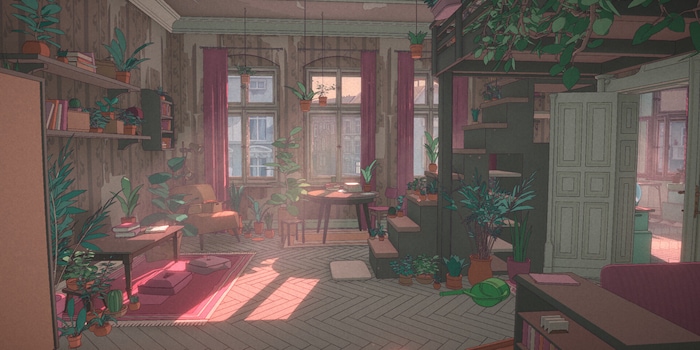
Five eras, one flat. In The Berlin Apartment, you experience the world in microcosm through multiple perspectives. This playful anthology series has impressive emotional depth.
In 1989, Kolja exchanged letters disguised as paper aeroplanes across the Berlin Wall. Josef packed his most treasured possessions before fleeing Nazi Germany in 1933. In 1945, the girl Mathilda tried to bring a touch of Christmas spirit to her war-torn family with sparse decorations. In 1967, Toni wanted to protect her novel about a cosmonaut from censorship by the GDR’s central administration. And in 2020, Dilara helped her father renovate the apartment they’d all lived in during the lockdown.
Welcome to The Berlin Apartment. It’s a game that gets under your skin with its short stories.
It’s boring. Or is it better than school? As Dilara, you stand in a run-down apartment in Berlin, looking around. Your father’s taken on the task of renovating it. The apartment’s quite big. Do rich people really need so much space? Rich people always want more of everything, my father explains. You ask if we can become rich someday. We’d have to renovate a lot of apartments for that, he replies. It’s dialogues like these that – seemingly incidentally – vividly illustrate the realities of life for the various people who’ve lived in the Berlin apartment.
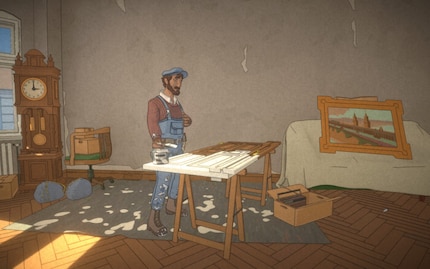
Instead of leisure time, Dilara has work to do. You make sandwiches, throw things into the rubble chute or peel off wallpaper. While you’re working, you come across a letter disguised as a paper aeroplane. Then your father tells you the story of Kolja, who lived here in 1989. Or, when you discover burnt Christmas decorations in the fireplace, you hear the story of Mathilda, who fought for survival in the apartment after the end of World War II.
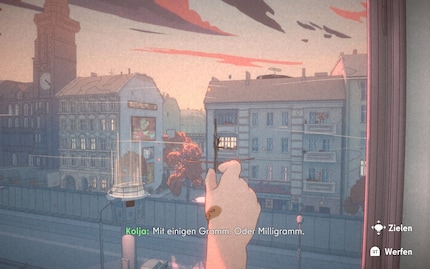
The storyline involving Dilara and her father cleverly connects the other sections and leads into the past. It’s a simple narrative device, but it’s executed brilliantly. It feels natural rather than forced.
The game immediately connects me to the characters emotionally. For example, the episode about Josef begins with him releasing his canary, perfectly mirroring his situation. He, too, has to embark on a new journey. While the bird gains its freedom through being released, Josef has to fight for his freedom by fleeing. After the Nazis seize power in 1933, he’s persecuted for being Jewish.
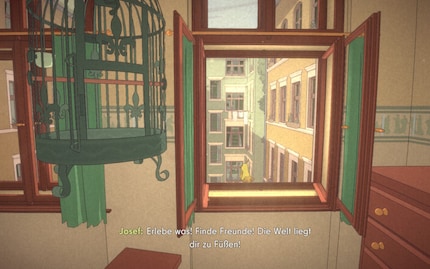
The game’s peppered with metaphors like these, which make the narrative richer and draw me closer to the characters. I was particularly taken with the introverted Kolja, whose clumsy, quirky manner reminded me of myself. The arguments with his talking goldfish Erich are brilliant. He constantly points out what a coward I am – all in a thick Saxon dialect. This brings a smile to my face again and again during the roughly 40-minute segment.
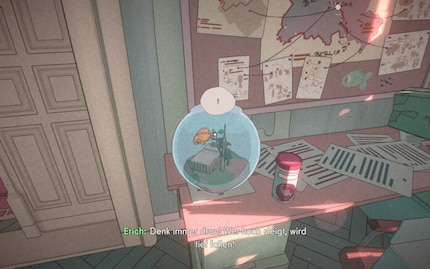
The Berlin Apartment’s a short game. After just over three and a half hours, I see the credits roll. The game doesn’t need to be any longer. It strikes the perfect balance between narrative and gameplay.
In terms of gameplay, The Berlin Apartment doesn’t offer much, but it gives you more than most walking simulators. As Dilara, you hammer tiles off the bathroom wall. You manoeuvre Kolja’s paper aeroplanes through turbulence with the joysticks. You collect decorative items from Mathilda’s basket and hang them up. And you pack Josef’s belongings into his suitcase like Tetris.
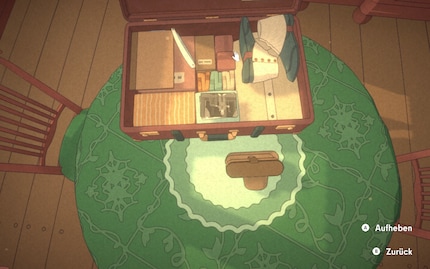
None of this is particularly challenging, but it keeps me engaged. There’s only one gameplay element I find completely unnecessary, even annoying: as Toni, you’re forced to rewrite the manuscript for your book by the GDR’s central administration. To make Toni type on her typewriter, you have to press a random button on the controller. For every single letter. Why? Mindless button-mashing’s never been synonymous with good gameplay. Hopefully, the developers will change this for the final release.
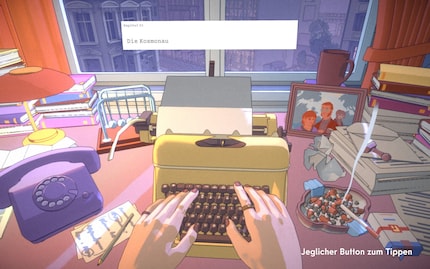
Visually, the game has a comic-like style. The intense, sometimes oversaturated colours contrast with the dark themes it explores. This seems to be a deliberate choice by the developers, such as in the episode featuring Mathilda. Battered by the hardships of war, the family initially lives in a dreary, colourless apartment. Only as I gradually add decorative items does the flat begin to shine. This means the design’s always an integral part of the narrative, which is also reflected in the apartment’s constantly changing appearance.
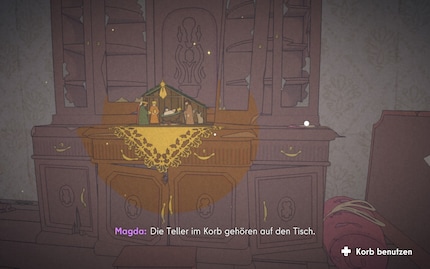
The only criticism I have of the visual is a few minor flaws. For example, hands occasionally show through objects. Or a box I have open obstructs my view.
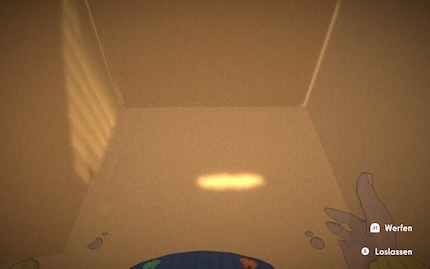
The soundtrack and sound effects are more understated than the graphics, mostly playing subtly in the background. I only notice them when I consciously focus on them. They complement the visuals well.
I especially love the German voice acting. You can tell a German studio’s behind the production. The voice actors do a fantastic job and portray the characters convincingly. Mathilda’s mother particularly moved me. Her despair at the seemingly hopeless situation after Germany’s defeat in the war is conveyed incredibly well in just a few sentences.
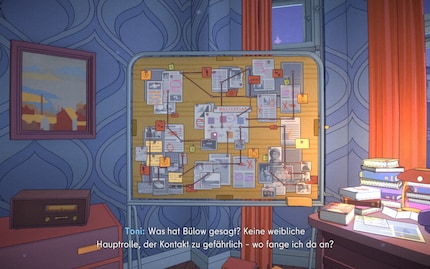
The English voice acting’s also good, but it doesn’t quite match the German version. I also noticed another bug with the voice output: after switching from English to German, it briefly switched back to English.
_The Berlin Apartment’s due for release on 17 November for PlayStation 5, Xbox Series X/S and PC. The PC game was provided to me by btf for testing purposes.*
The Berlin Apartment’s more than just a game; it’s an emotional and immersive journey through German history, told within the microcosm of a single flat. The game captivates with five short but emotionally profound episodes, elegantly interwoven by a clever background plot.
The stylised comic-like graphics and excellent German voice acting create a rich atmosphere and vividly convey the fates of the residents. While the gameplay’s undemanding and suffers from a particularly irritating mechanic, this does little to detract from the overall experience. The focus on the touching stories and characters is what makes The Berlin Apartment a short but unforgettable and highly recommended experience.
Pro
Contra
From big data to big brother, Cyborgs to Sci-Fi. All aspects of technology and society fascinate me.
Which films, shows, books, games or board games are genuinely great? Recommendations from our personal experience.
Show all